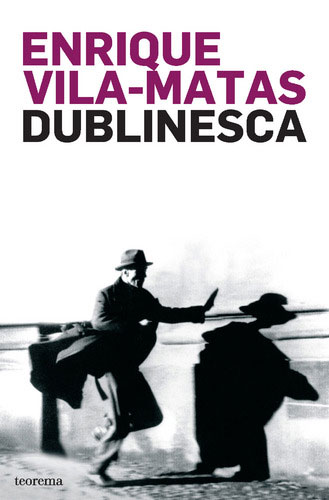
Dublinesca, by Enrique Vila-Matas
This book was recently published in English as Dublinesque.
I didn’t think much of this book, and the only reason I’m going to write about it a little is that certain comments about the role of the English language in the main character’s imagination (and in Spanish intellectual circles more generally, maybe) caught my attention.
The main character is obsessed with making ‘el salto inglés’, an “English leap” or perhaps leap into the English language. He cannot speak a word of English, we are reminded about a dozen times. And yet, he begins to see a translation of himself into a new place and tongue as his chance for redemption, now that his career as a literary editor has juddered to a halt.
There is no mention of Catalan or Irish, surprisingly for a book that takes place in Barcelona and Dublin only. The assembled editors and writers at one point take offence at a Spanish waiter in Ireland who speaks English with too natural an accent.
Later on in the book, Riba (the main character) dreams an encounter with a ghost:
— If you’re there, knock three times.
Enter Ghost. Maybe this obsession only began as a way for him to feel closer to the first person, to this initial good man who stayed hidden behind his own backlist.
Of course we are all aware that ghosts belong only to our memories, they almost never arrive from far-off lands or outer space. They are our lodgers.
— The red suitcase?
— Me, I don’t travel, says the ghost. — I’m just trying to get born. And to learn English, that’s the thing I need.
I won’t give too much explanation for the other parts, but this tongue-in-cheek staging of a lack of a language occurs repeatedly in the course of the novel.
On the other hand, the author clearly likes to show that he is adept in English, quoting Ulysses and other books whenever necessary (e.g. when nothing interesting is happening in the actual story). I wondered a bit about the morality of this, what impression it gives of the narrative voice, which is at other times using the fact that Riba is so much less able with English as a stick to beat him with, or at least gently prod.
To me at least, it made a bad impression, but also it made me consider to what extent I’ve been responsible for similar mocking or patronising code-switches in my own writing.
This book, then, is a solid testament (for all that it tries not to take itself too seriously) to the Barcelona love affair with France coming round to London and New York and fluency in English, something that has certainly fuelled my employment history recently.
Below the line I’m going to criticise the book some more, but it won’t be about the role of the English language, just general grumblings. Continue reading →







